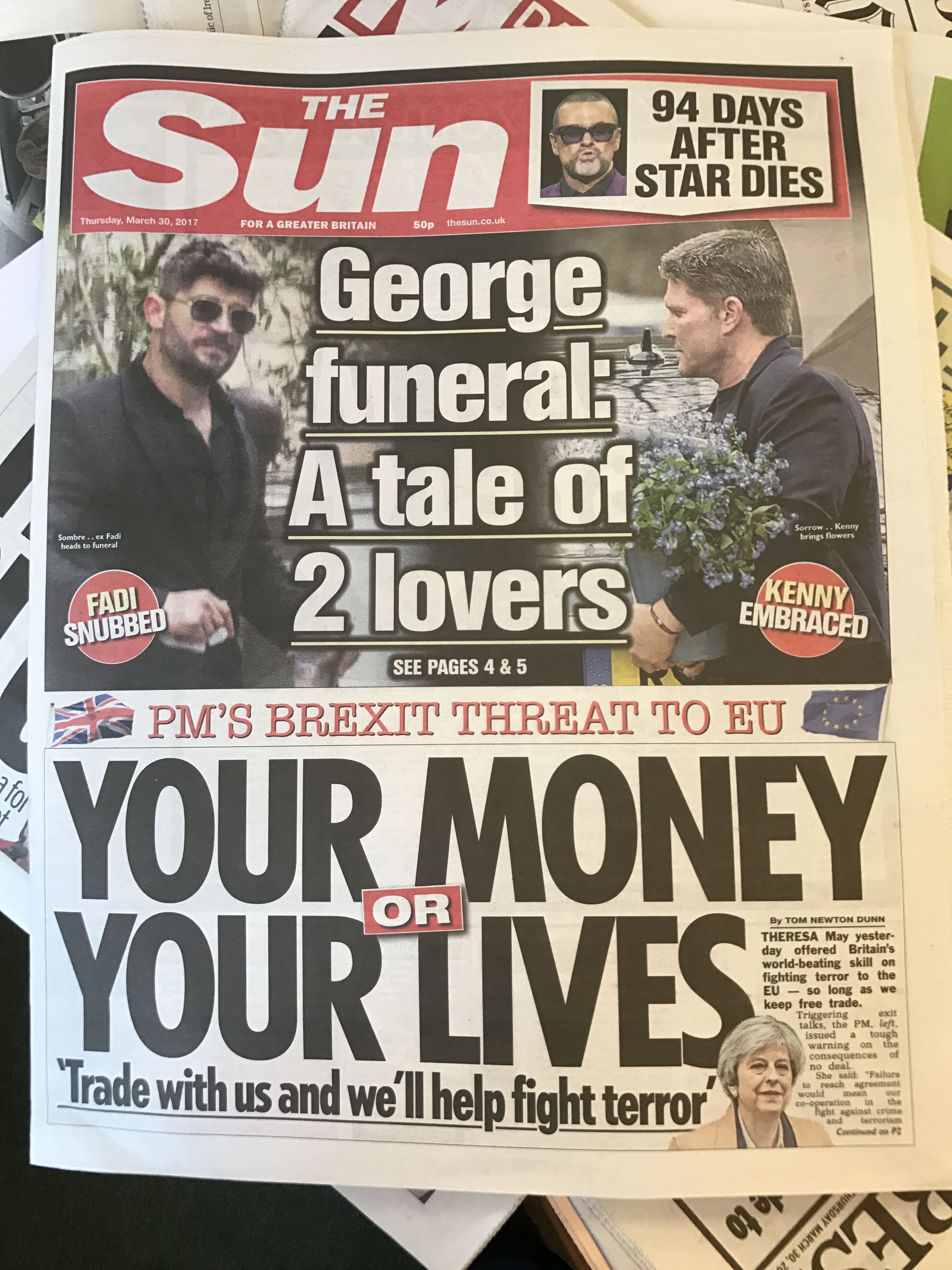What will Europe make of today’s headlines?
Denis MacShane always used to say, the thing you need to remember about Europe is that “we don’t read their papers but they read ours.” Ponder what they make of these. The Mail praises a “show of steel” and The Sun spells out what was already to many eyes a pretty explicit threat in the Article 50 letter.


The reply that yesterday’s letter gets from the EU27 will be more important than the Article 50 letter sent from London yesterday. There will be a draft very soon of the guidelines and that is not expected to change much before the April 29 EU27 meeting. The EU has known the bones of what is coming from the UK for a while and yesterday’s letter didn’t change that much. “They will be pretty pedagogic,” one source said.
The most significant material change could prove to be the admission that a transition is needed. I’m told this doesn’t mean that the government has given up on negotiating a Free Trade Agreement by October 2018 (even if you struggle to find anyone outside government who thinks that is possible). Whitehall talk is still of an implementation phase of two years or so restricted to customs changes and needing time to get new administrative arrangements in place.
But Theresa May’s Commons appearance yesterday seemed to open the door to the idea that there could be ECJ jurisdiction over trade in a transition period. Getting a special dispute settlement mechanism up and running in time for March 2019 cannot be managed, EU sources have consistently said. But any ECJ jurisdiction after March 2019 was, not so long ago, thought to be one of the thought crimes for which Sir Ivan Rogers was indicted by the No. 10 star chamber. Now, it seems, as Brexiteers get more relaxed about the irreversibility of Brexit, it’s ok. As one source put it: “For a bit, on a bit.”
It may be that the Commission isn’t up for this kind of deal but it was one of the moments yesterday that made you feel that the British position had drifted a little closer to Philip Hammond’s end of the table than Liam Fox’s.

The other part of Theresa May’s speech that left that impression was the admission that UK trade could suffer from Brexit and we might need to tack close to EU standards and product rules even after leaving.
That touches on the massive and unresolved debate at the heart of Brexit: what kind of country are we going to become. Theresa May didn’t restate the “low tax/small welfare state” threat yesterday – what Craig Oliver used to mock as the “onward to Singapore” approach. The PM merely said that everything she said in her Lancaster House speech still applied. Some on the right in her party want to tear up the vast majority of the rules being copied and pasted into UK law under the Great Repeal Bill. It was part of the fire that burned within their Eurosceptic faith. The Telegraph campaign against red tape is egging them on.
One veteran EU diplomat says: “don’t forget that question number one is do the EU27 want to have a comprehensive Free Trade Agreement with the UK at all? There is no automaticity.”
I mentioned that the EU politicians and diplomats follow our newspapers. They also follow the twists and turns of UK politics closely and their overall impression, putting to one side the olive branches inserted into yesterday’s letter, is that that Theresa May has tended to lean into the Right of her party in her first eight months in office. She has also tended to pay close attention to the campaigns of the Daily Mail. Some EU figures put it more brutally.
Which way will Theresa May lean in the months ahead? Will the EU27 push her into the arms of Brexit hardliners? Having reassured them and firmly shut the door to a re-think on Brexit, will Theresa May feel she can tack away from the Right? Much rides on the answers to those questions.



